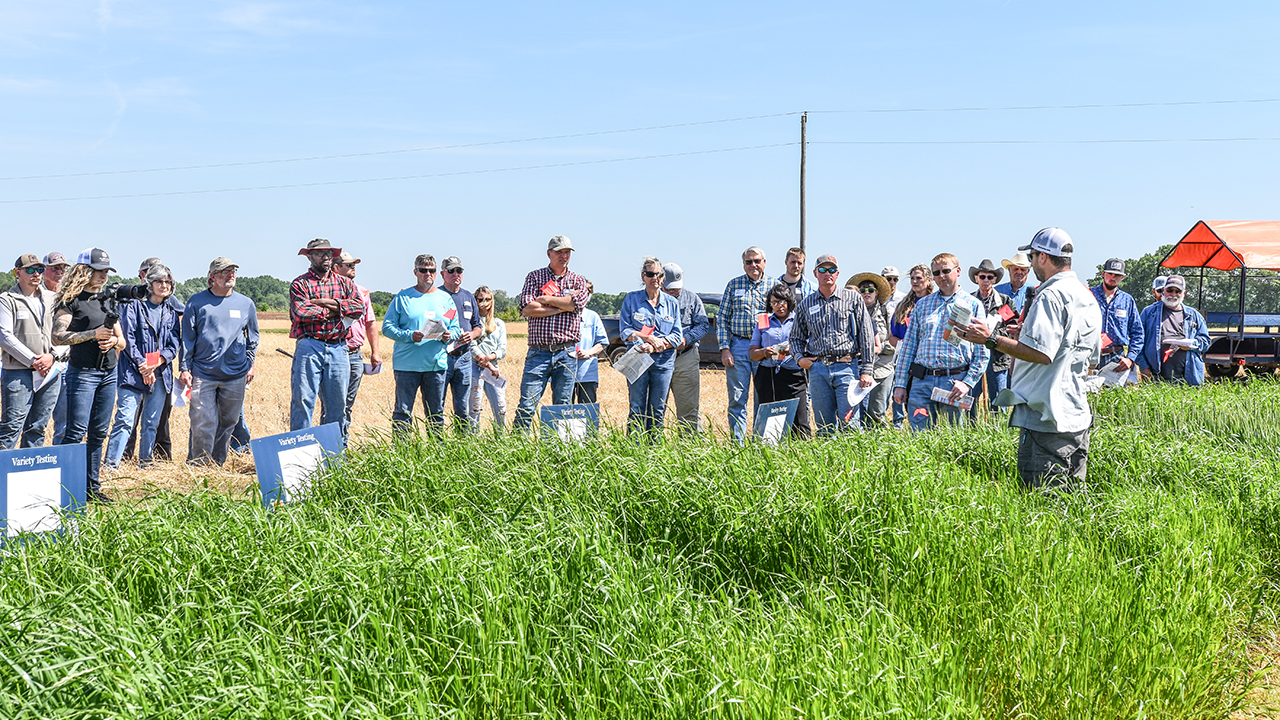Auburn University
Variety Testing Program

Variety selection is the most important decision a farmer can make. If farmers want to be successful, they must ensure that they plant varieties that are well adapted. If a farmer selects the wrong variety, the results can be catastrophic. Typically, farmers do not have the resources to conduct variety trials in addition to their normal growing season activities.
Variety evaluation is also critical to plant breeders, both from universities and industry. Prior to releasing a new variety, these breeders typically evaluate their lines in independent variety trials. This ensures that they have unbiased data from multiple years and locations to support the release of their new variety.
The mission of the Auburn University Variety Testing Program is to provide research-based, unbiased results on the performance of various crop hybrids, cultivars, and varieties to the agricultural community in Alabama. We are intent on conducting these trials in a manner that will result in maximum biological yield through methods common to the top-producing farms in Alabama.
We are committed to providing this information in a timely manner for its use during the decision-making process. The success of the program rests on our ability to help Alabama producers provide a safe, dependable source of food and fiber for all families as well as an economic sustainability for theirs.

Henry Jordan
Variety Testing Manager, Research Associate IV
Subscribe to AU Variety Testing Updates
Annually, the Auburn University Variety Testing Program conducts trials on corn, cotton, soybeans, peanuts, grain sorghum, wheat, barley, oats, triticale, small grain forages, and ryegrass.
Trials are conducted on Auburn University owned and operated agricultural research stations across the major geographical regions of the state. The research conducted at each of these locations can provide stakeholders with data that can be more representative of their growing conditions.
Performance of Small Grain Varieties in Alabama, 2024-2025
July 3 - Yield results and disease ratings are available for: TVREC wheat, oat, triticale, & barley EVSRC wheat June 25 - Results are available for the oat and wheat OVTs conducted at the Black Belt Research & Extension Center (BBREC) in Marion Junction. June...
2025 Grain Sorghum OVT Entry Form
January 15 - The 2025 Auburn University Official Grain Sorghum Variety Trials (OVTs) entry forms are now available. 3 New Trials for 2025: EVSRC Location (2 trials) WREC Early Planted Entry Forms Due by February 28th. Statewide, there are a total of 4 Grain...
2025 Soybean OVT Entry Form
January 15 - The 2025 Auburn University Official Soybean Variety Trials (OVTs) entry forms are now available. Entry Forms Due by February 28th. Entries can be submitted in 4 categories (North, Central, South, RKN Screening, Early MG4) Seed Please send seed as...
2025 Cotton OVT Entry Form
January 15 - The 2025 Auburn University Official Cotton Variety Trials (OVTs) entry forms are now available. New for 2025: Root Knot Nematode Evaluation Entry Forms Due by March 3rd. Entries can be submitted by category (Full Season, Short Season,...
2025 Peanut OVT Entry Form
January 15 - For the 2025 season, peanuts will be tested in 4 locations for a total of 5 trials. Trials will be planted in 4-row plots and will require 15,000 kernels of seed. Due to space, the number of entries is limited. Entry Forms Please submit as soon...
Performance of Winter Forages in Alabama, 2024-2025
June 25 - Forage yield results are complete for the season. The following have been updated: CREC Ryegrass - Harvest 4, Late Season, Season Total SMREC Ryegrass - Harvest 4, Late Season, Season Total SMREC Oat - Harvest 3, Late Season, Season Total SMREC Wheat,...

